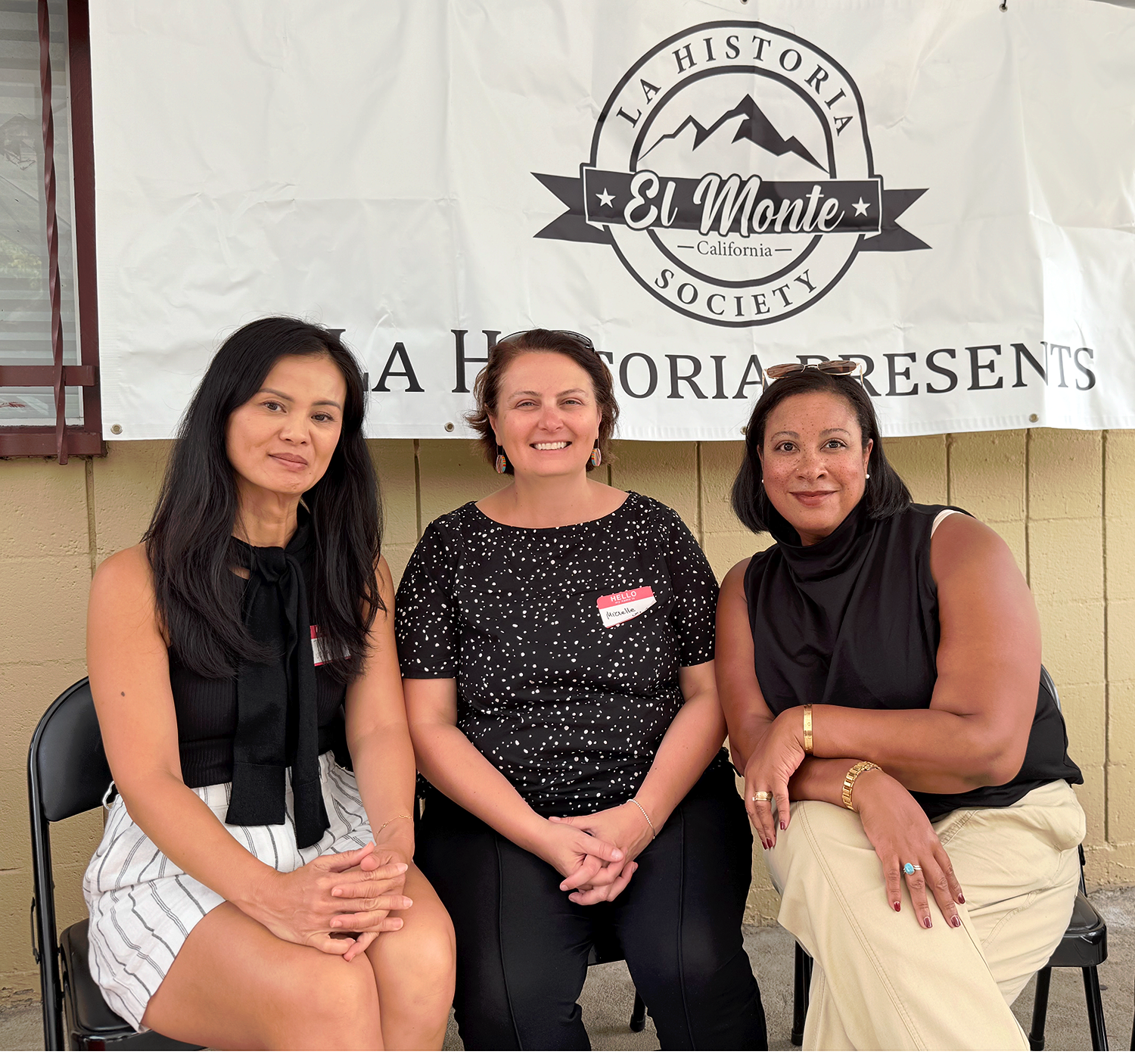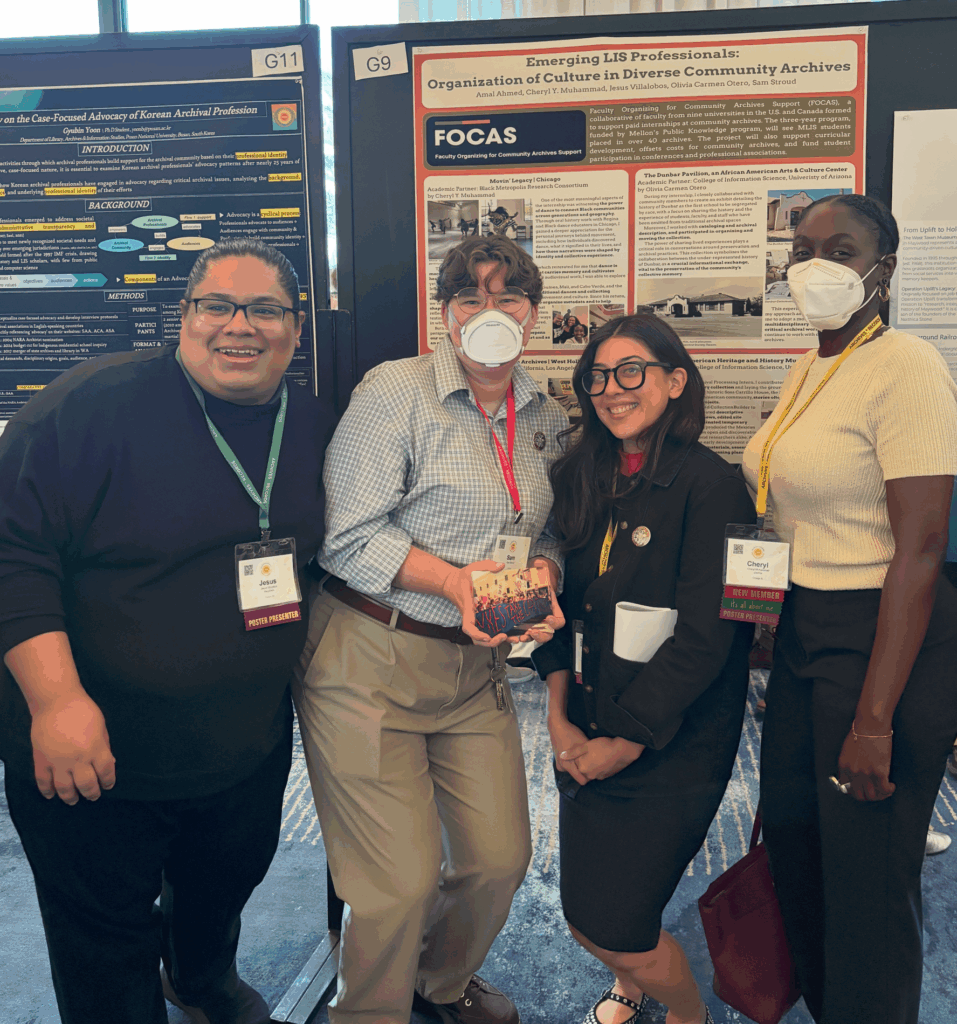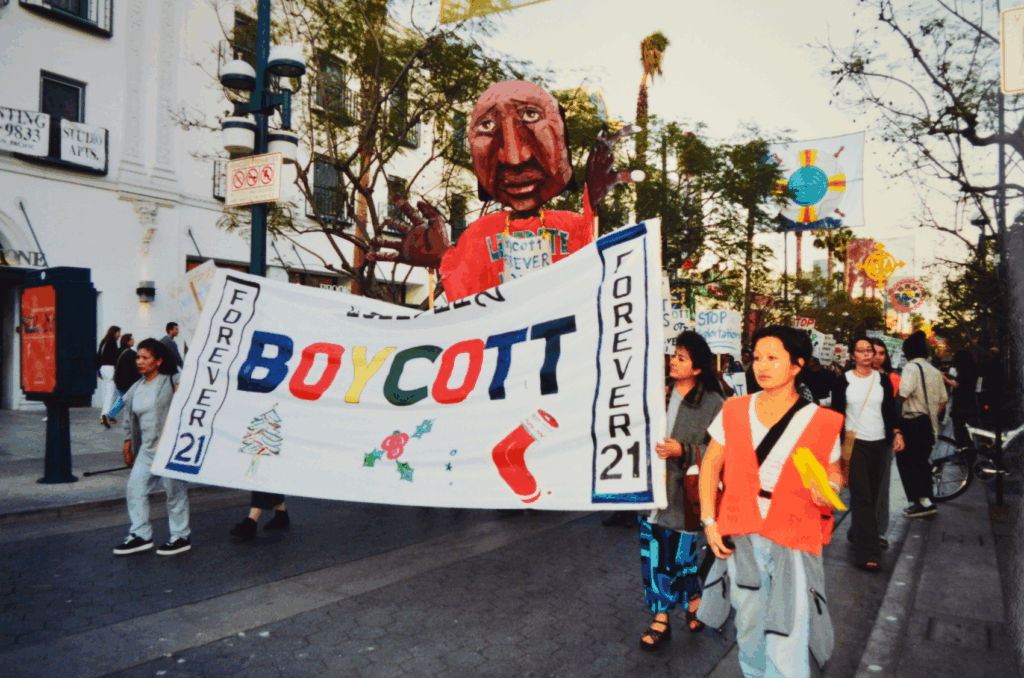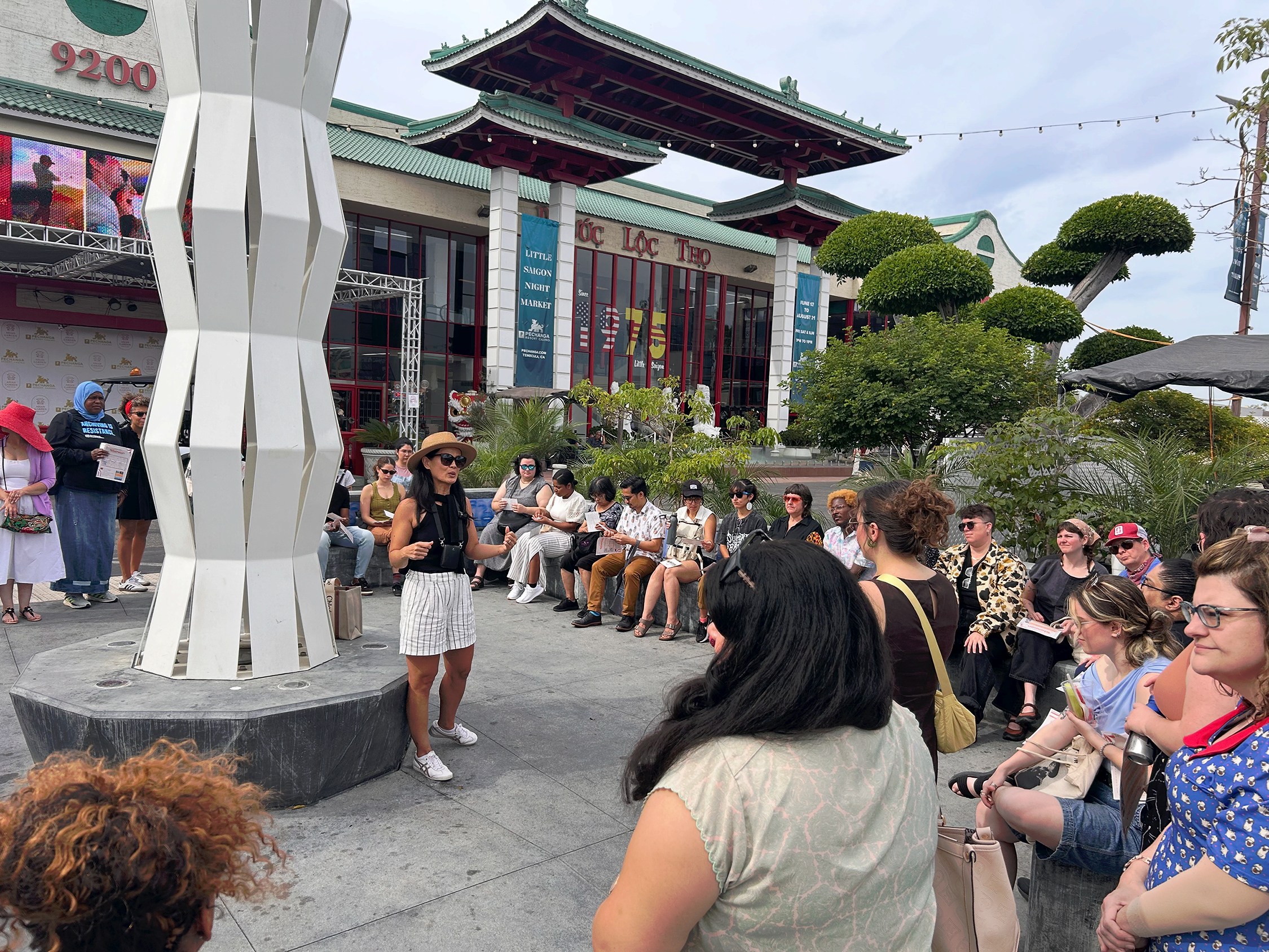Groundbreaking work by UCLA IS in preserving marginalized histories takes to the stage – and the streets – during annual convening of the Society of American Archivists.
UCLA Assistant Professor of Information Studies Thuy Vo Dang, recent UCLA IS graduate Sam Stroud, and second-year MLIS student Rosalía Iriye presented their work at the annual conference of the Society of American Archivists (SAA), held in Anaheim, Aug. 24-27.

Professor Vo Dang co-delivered the conference’s keynote, “Resisting Erasure, Building Trust and Creating Safety & Equity” with Gabriel Solis, executive director of the After Violence Project, and Krystal Tribbett, PhD, curator for Orange County regional history at UC Irvine. Their conversation focused on the solidarity and resistance needed to sustain community history during times of increasing scarcity and threats to community memory work and their involvement with the Community Archives Collaborative (CAC), Community-Centered Archives Practice (C-CAP), and Faculty Organizing for Community Archives Support (FOCAS) to explore how archival education, mutual aid, and shared authority are effective models to resist erasure, build trust, and foster safe and equitable partnerships across the archives field.
The Mellon-funded Faculty Organizing for Community Archives Support (FOCAS), a collaborative of nine Information Schools and Departments at universities in the U.S. and Canada, convened for their annual business meeting at SAA. Following the conference, Vo Dang, co-director of the UCLA Community Archives Lab and co-principal investigator for FOCAS,led a walking tour of Little Saigon in Orange County to kick off a FOCAS Community Tour Day. UCLA Community Archives Lab founder and co-director, Professor Michelle Caswell, facilitated the second part of the day with a visit to La Historia, a community archive in East Los Angeles. Since 2017, Professor Caswell has deepened relationships with LA-based community archives while supporting paid internships at these sites for MLIS students. Numerous UCLA MLIS students have served paid internships at La Historia, supported by a grant from the Mellon Foundation.
Professor Vo Dang says that the FOCAS Community Tour Day gave students and faculty members, “… an opportunity to build connections and networks for our students and ourselves. This was a chance to be in-person with each other [and] a really great way for our student interns to meet and share their stories around working [at] their own community archives.”

UCLA is the only California institution represented within FOCAS. Vo Dang says that many iSchools across the nation do not have the staffing or bandwidth to support courses on community archiving, which is a challenge to the field in preparing students to work with marginalized populations in archives.
“That’s not attentive to how flexible you need to be, or how to build trust, and how to work with community, and attend to the power dynamics that are there,” she says. “What we do is so human-centered. [It’s] not necessarily going in and saying, ‘We’re the experts because we’re the archivists,’ but instead asking, ‘What do you think would be the best way to document your organization’s history?’ Or, ‘What do you see are the needs in your community around memory work and how to best care for its cultural heritage?’ Mainly, it is about getting people to think about narrative change and advocate for the most marginalized voices in our communities to have a platform.”
Stroud co-presented a poster at SAA based on her experience in FOCAS and the role of community archives as critical entry points into the archival profession and on the importance of an inclusive and participatory approach to community-centered archival practices. She credits her experience as an intern at the June L. Mazer Lesbian Archives through the UCLA Community Archives Lab as leading to her recently being hired there as an archivist, creating metadata for the Mazer’s subject files.
“When I started the MLIS program, a couple of mentors advised me, “You’re probably not going to be able to get a job in community archives – stick with UCLA Library [or] a traditional bigger archive, a university archive that’s more stable,” recalls Stroud, who also worked as a graduate student doing metadata cleanup for the UCLA Modern Endangered Archives Program, a digital library program out of UCLA Library.
“This was one of the reasons why I felt so strongly about the four of us doing a poster [for SAA], because I really want to legitimize community archives as a possible career path. People kind of view community archives as like, ‘Oh, that’s a place to volunteer or to intern,’ but I was really excited to [prove] them wrong – maybe changing that narrative a little bit.”
Iriye is the digital collections manager for the UCLA Institute for Research on Labor and Employment (IRLE). Her poster presentation described her involvement with creating a digital archive for the IRLE, in partnership with the Garment Worker Center, exploring the International Ladies Garment Workers Union (ILGWU)’s
historic role in Los Angeles immigrant labor movements.

Above: Workers picketed with the Garment Worker Center at a Forever 21 storefront at Santa Monica Place, early 2000’s. Courtesy UCLA Institute for Research on Labor and Employment
“We’ve been working to develop our in-house archival processing and digitization workflows,” she says. “We’re historicizing the root of LA labor movements [with] a broader impact on UCLA’s research, and more broadly, LA migrant organizing.
“There are still sweatshops in LA,” says Iriye. “My approach to archives is very grounded in … recognizing the narrative of workers’ voices. There’s the government record, a lot of meetings, that kind of thing, but [in] expanding the definition of what a labor record is, how we’ve preserved our own histories, there is so much oral history, media, photographs that we can highlight to see that directly.”
Iriye says that archiving the histories of the ILGWU and immigrant worker centers like GWC, is a timely project for the IRLE archive.
“The ILGWU was actually one of the first unions in the U.S. to call for unconditional amnesty for undocumented workers,” she says.
Michelle Caswell, professor of information studies and inaugural advisor to UCLA’s Executive Vice Chancellor and Provost Darnell Hunt on community-engaged scholarship, and Tonia Sutherland, associate professor and SEIS associate dean for faculty development, are also co-PIs for FOCAS and co-directors of the UCLA Community Archives Lab.
Visit the SAA website to view the abstract to “Emerging LIS Professionals: Organization of Culture in Diverse Community Archives” by Sam Stroud.
Visit the SAA website to view the abstract to, “Look Beyond The Union Label: Archival Threads of the International Ladies Garment Workers Union (ILGWU) into the UCLA Institute for Research on Labor and Employment (IRLE) Labor Archive” by Rosalía Iriye.
